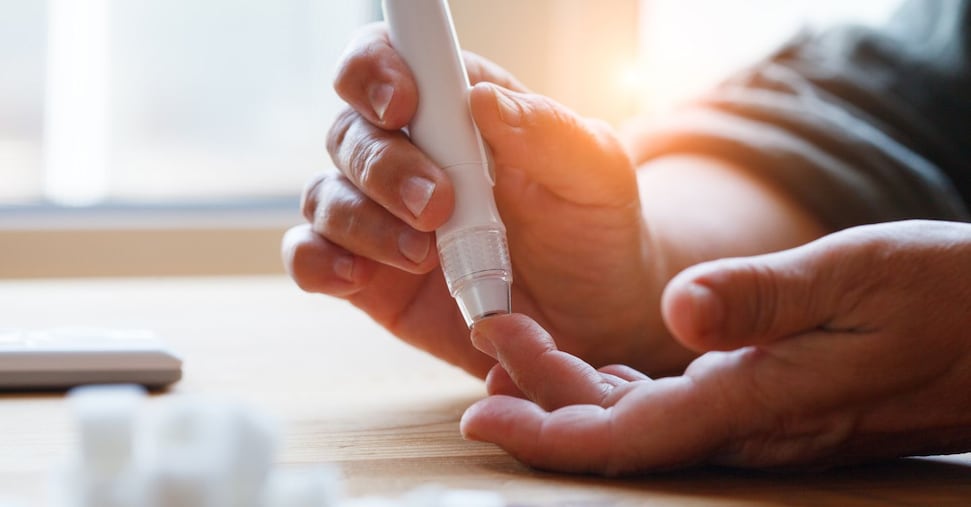Type 2 diabetes mellitus is no longer a life sentence. This revolutionary perspective overturns decades of medical beliefs that regarded the disease as progressive and irreversible. Nutrition plays a central role in this turnaround: the traditional low-calorie Mediterranean diet can have a positive effect on remission, offering a sustainable alternative to more restrictive regimes. As Dr. Domenico Tricò, Lecturer and Medical Director in Internal Medicine at the Section of Diabetology and Clinical Nutrition of the Azienda Ospedaliero Universitaria Pisana, explains, ‘remission of type 2 diabetes mellitus is now a concrete possibility, clinically relevant and – in selected contexts – also easily achievable’. The definition of remission, now clarified by an inter-society consensus, indicates ‘a return to glycaemic values below the diagnostic range for diabetes in the absence of drug therapy for at least three months’. Although spontaneous remission remains rare (less than 2% of the general population), targeted interventions can significantly increase these chances, especially in newly diagnosed patients.
Healing weight: every pound lost counts.
The secret of remission lies in weight loss. All effective therapeutic approaches share this common denominator, supported by unequivocal scientific evidence: every percentage point of weight lost increases the probability of remission by 3%. This fact transforms weight loss from a simple recommendation to a precise and measurable therapeutic strategy. The three main strategies for achieving remission are lifestyle modification, selected pharmacotherapy and metabolic surgery. The former represents the most accessible and sustainable approach, while the other options are reserved for specific cases. The flexibility of the nutritional approach is crucial: as Tricò points out, ‘it is not necessarily necessary to adhere entirely to the liquid diet, christened ‘soup and shake’ by the British who pioneered it: even partial meal replacement or a traditional low-calorie diet (such as the Mediterranean) can have positive effects’.
The DiRECT study: sustainable and multi-professional approach
The DiRECT study represented a breakthrough in the management of type 2 diabetes. Conducted on patients with recent diabetes and excess weight, it demonstrated the effectiveness of a simple but revolutionary protocol: a low-calorie diet with liquid replacement meals of 800 calories per day for three months, followed by the gradual reintroduction of food. The results were very encouraging: 45% remission at one year and 13% remission maintained at five years. The simplicity of the intervention amazed the researchers themselves: it was managed by general practitioners, nurses and dieticians after just eight hours of training. This model inspired the NHS Path to Remission Programme in the UK, which achieved 27% remission even in non-selected participants, often supported only through apps or telemedicine.
Towards the ‘Remission Clinics’: a sustainable future.
“The benefits of diabetes remission go beyond clinical satisfaction. As research shows, the benefits are manifold: a 50 per cent reduction in pharmaceutical expenditure, prevention of micro- and macrovascular complications, and an increase in life expectancy of up to six years. The initial investment of the programme is largely compensated by the savings on drugs, visits, hospitalisations and complication management,’ Tricò explains. Now, according to the experts of the SID – Società Italiana di Diabetologia (Italian Society of Diabetology) – who recently met at their national congress in Riccione, this model is ready to be expanded and introduced in our Ssn as well. “A progressive system for the remission of type 2 diabetes, inspired by the English experience, with three levels of treatment: lifestyle intervention managed by non-medical staff, drug therapy for relapsing cases, and metabolic surgery only for selected cases. The aim is to create ‘Remission Clinics’ run mainly by nurses, dieticians and psychologists, with remote support and simple but effective interventions’. It is crucial to remember that ‘remission does not mean cure, but a slowing down of the disease process, which makes constant follow-up essential. However, at diagnosis, remission should be proposed to all patients, as a motivating objective, transforming the approach to diabetes from chronic management to a possibility of therapeutic freedom,’ Tricò concludes.


Dining and Cooking